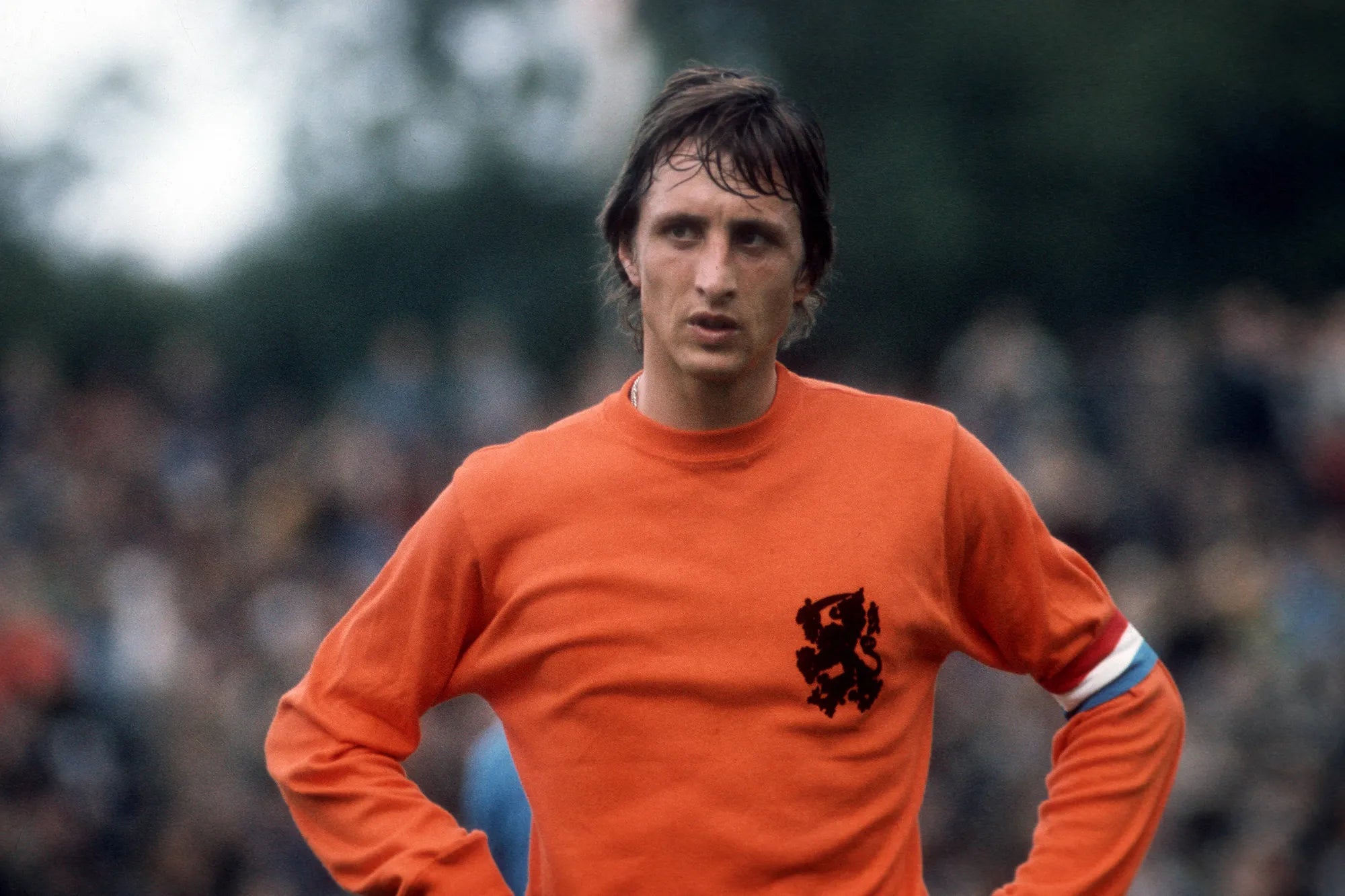
TOP 10 WORLD CUP MEMORIES OF ALL TIME - NUMBER 9 - TOTAL FOOTBALL AT ITS FINEST
The Dutch teams of the 1970s were some of the greatest of all time, despite being unable to win the World Cup. It's a great shame from a neutral perspective that they were unable to do so, because they have not been given their proper credit in the ranks of the best teams ever.

Michels took his revolutionary Total Football style of play from Ajax to the national team, picking many of the same players too - including the imperious Johann Cruyff, his conductor on the pitch.

Their system of total football revolutionized the game, and they executed to near perfection at the 1974 and 1978 World Cup. No play better demonstrates the immense skill of these Dutch sides, then the very first play in the 1974 World Cup Final.
In the final, Holland met their arch-nemesis West Germany on their home soil. There was an absolutely cracking atmosphere, and the tension was palpable before the game. Holland kicked off the match, and the home fans were given a sucker punch right off the bat.
The Dutch patiently stroked the ball around waiting for an opportunity to attack. They passed and passed before, while the Germans couldn’t even get a touch on it. Finally, after 15 completed passes, the ball fell to the best player in the world at the time—Johann Cruyff.
He darted into the box past two German defenders before being hacked to the ground by Uli Hoeneß. Johan Neeskens stepped up to the spot and beat Sepp Maier to give the Dutch the lead. It was the fastest goal in World Cup Finals history and the first touch the Germans had when Maier picked the ball out of the back of the net.

West Germany would go on to win the match, 2-1 and lift the trophy for the second time. However, this moment remains as the one of the best in World Cup history because it epitomizes the brilliance of these Dutch teams and total football.
Total football won fans over from all over the world, as a result of watching the Dutch teams of the 70s play. In addition to that, many clubs and national teams all over the world have implemented this playing style.

The Dutch team of 1974 is often compared to The Beatles with Johan Cruyff as the John Lennon character. Total Football begins a few years later but its demise is a few years earlier than what happens to the Beatles’ music with John Lennon murdered in 1980. Altamont occurs in 1969 — a symbolic end to the idealism of the 60s so it gets very dark. Holland’s ’74 team is somehow the Summer of Love, Sergeant Pepper, Altamont and the death of John Lennon all in one four-week period. You get the whole thing — the peak, the summation of this movement that’s been developing since the mid-60s in Holland which embodies some of the ideals of the youth movement of later in the deacde and you have this team where Ruud Krol — this hard defender, is wearing hippie love beads in a World Cup final. And then there’s this disaster that happens to them – there’s the flowering of this lovely thing and then its destruction all in a very short time.

Cruyff has long held the belief that Holland’s 1974 World Cup was a success because the team’s legacy was one of beauty. He felt their failure to win a trophy was irrelevant. They changed everything. They were unique. They ripped up the rule-book and created their own. They didn’t need a piece of silverware to know they had accomplished something special. The sentiment has been carried through the last four decades and become part of the Dutch culture.

It is a tragedy that maybe the greatest team ever fell short and it’s strange that the template of Total Football fell at the final hurdle whereas its strongest, direct-line successor is the Spanish team that’s adopted the Cruyff/Dutch idea of how football should be played and forty years later, it’s swept all before it.
In 1988, when they beat the Germans almost in an exact mirror image, a 2-1 game in Hamburg, the eruption of joy and revenge, etc. It was a long-delayed reaction to 1974 in some ways. It didn’t make up for ’74 – at the time it did but it didn’t really. It was a lesser competition, it wasn’t the same team.
Be a TENLEGEND®
